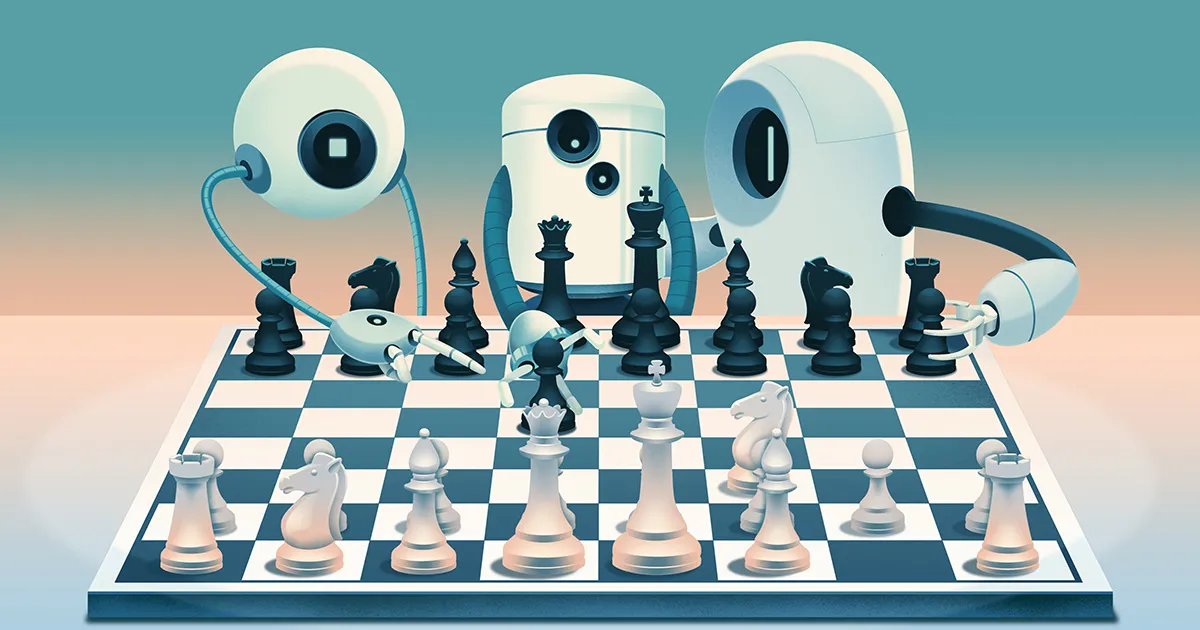Introduction
In 2020, during the Covid-19 lockdown, computer scientist Tom Zahavy reignited his interest in chess, a game he had enjoyed in his youth. This renewed passion was sparked by his recent reading of Garry Kasparov’s “Deep Thinking,” recounting the grandmaster’s matches against IBM’s Deep Blue in 1997. Zahavy delved into chess videos on YouTube and watched “The Queen’s Gambit” on Netflix. Despite his admission that he was not an exceptional player, preferring chess puzzles over actual gameplay, Zahavy recognized the value of these puzzles in honing strategic skills.
Chess puzzles not only serve as training tools but also expose the limitations of game programs. Renowned scientist Sir Roger Penrose introduced challenging puzzles in 2017, featuring unconventional placements of strong black pieces, revealing the complexities beyond traditional gameplay. Zahavy, intrigued by Penrose’s puzzles, embarked on a quest to understand why computers struggled with these tasks that humans could solve. This curiosity led him to explore innovative problem-solving strategies at Google DeepMind, aiming to develop versatile artificial intelligence capable of multifaceted tasks.
By integrating multiple decision-making AI systems, Zahavy and his team enhanced DeepMind’s AlphaZero, creating a more adept program that excelled in solving Penrose’s puzzles. This collaborative approach among diverse AI systems showcased superior problem-solving abilities, akin to human brainstorming sessions. The success of this endeavor highlights the significance of exploring varied solutions to challenges, transcending the limitations of singular strategies.
Identifying Mistakes
Zahavy’s background in reinforcement learning, a key component of artificial intelligence, provided valuable insights into the shortcomings of conventional trial-and-error training methods. While reinforcement learning can yield proficient strategies, it may lack a deeper understanding of the game, leading to peculiar glitches and blind spots in AI systems. Zahavy speculated that these anomalies could stem from the system’s pursuit of internal rewards, hindering its ability to recognize and rectify failures—a crucial aspect of creative problem-solving.
Traditional reinforcement learning models may excel in specific tasks but struggle to generalize solutions across diverse problem sets. Zahavy recognized the necessity of a more adaptive approach, especially when tackling complex challenges like Penrose’s puzzles. By incorporating a diverse range of training scenarios and encouraging creative thinking, Zahavy aimed to enhance AlphaZero’s problem-solving capabilities beyond standard gameplay.
A More Effective Approach
To address the inference issue inherent in reinforcement learning, Zahavy and his team introduced a multifaceted AlphaZero, comprising multiple AI systems trained in varied settings. This novel approach emphasized creative diversity, enabling the system to explore innovative strategies and make wise decisions in challenging scenarios. The enhanced AlphaZero outperformed its predecessor in both traditional chess games and Penrose puzzles, showcasing the power of collaborative problem-solving among diverse AI agents.
The success of this diverse AI system extends beyond chess, offering valuable insights into enhancing performance across various domains. By fostering a culture of experimentation and embracing diverse solutions, AI systems can transcend limitations and achieve breakthroughs in complex problem-solving tasks. Zahavy’s research underscores the importance of exploring multiple avenues to uncover innovative solutions, mirroring the collaborative creativity observed in human endeavors.
In conclusion, Zahavy’s pioneering work in integrating diverse AI systems exemplifies the potential of collaborative problem-solving in advancing artificial intelligence. By leveraging creative diversity and adaptive learning strategies, AI systems can overcome challenges and excel in multifaceted tasks, paving the way for enhanced performance and innovation in the field of artificial intelligence.






